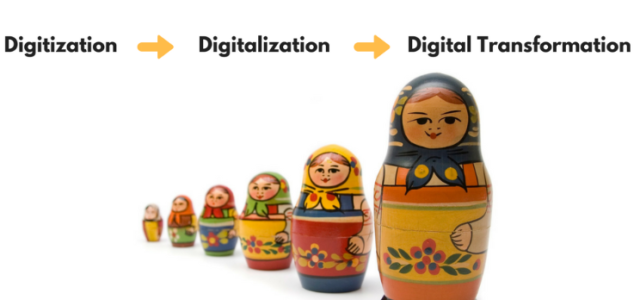Scarcely a week goes by without a new survey on how intelligent machines are impacting the future of work. After a flurry of initial apocalyptic headlines predicting human obsolescence, more recently, studies have focused on human-robotic coexistence. But if the new partnership is to be a harmonious one, a number of culture gaps will have to be addressed.
A newly published study by global professional services firm Genpact and Fortune Knowledge Group finds that C-suite and senior executives expect their employees will “work comfortably” with robots by 2020. It also reveals, however, what it describes as a “striking disconnect” between the expectations of how artificial intelligence (AI) will impact the future of work and the actions companies are taking when it comes to preparing their workforces and organisations for the future.
Is Your Business AI-ready? highlights that even in AI’s early days of enterprise applications, large gaps in behaviour and performance exist between the so-called “AI leaders” (companies realising the most impact from AI) and “laggards” (those reporting the lowest business outcomes from this technology). While more than four-fifths (82 per cent) of respondents plan to implement AI-related technologies in the next three years, the report warns, these disparities in success will only widen without adoption of “critical widespread organisational change”.
“CxOs often struggle with how to achieve strong business impact from AI. The survey findings underscore what we see with our clients daily – success won’t come simply from technology alone,” said NV ‘Tiger’ Tyagarajan, president and chief executive officer, Genpact.
“Companies must train their workforce – at all levels – and encourage the right corporate culture. Collaboration between humans and machines has the power to improve customer experiences, grow revenue, and create new jobs – but only if senior management has the vision to proactively prepare and embrace change.”
The importance of culture change to the incorporation of AI into business processes and workplaces practices as well as products and services should not be overlooked and the top tier must take the lead. While recent news reports raise alarms about the average worker’s wariness of AI, the study shows that one third of C-suite respondents indicate that senior management is the group that most strongly resists AI.
This compares with only 13 per cent of respondents who cite middle management and a lowly five per cent who reckon entry-level workers resist most. The top three barriers to AI adoption are information security concerns, lack of clarity about where to apply AI most effectively, and silos within the organisation, especially between information technology and other functions.
The AI leaders “dramatically” excel over the AI laggards in encouraging a culture that fosters success. More than half (53 per cent) of AI leaders foster a training and development culture to learn new skills, compared to 15 percent of laggards while three-fifths of AI leaders say their middle managers think out of the box and encourage innovation, compared to only 14 percent of laggards.
So I have two questions for you? Are you an AI laggard? And, if so, what is it you fear? The three barriers are understandable but should all feature highly on a leader’s agenda anyway in this era of digital transformation.
It is time to eradicate any fear factor that still exists at senior level. This and other surveys point to a wealth of business opportunities and improvements that can come from implementing AI from improved customer experience to business growth. Indeed, Genpact’s study found that leaders are almost twice as likely to achieve increased revenues from AI (45 per cent of leaders compared to 25 per cent of all respondents).
There are also sufficient case studies in the public domain to demonstrate that AI can be extremely empowering for workers because it removes the routine and mundane aspects of their roles, freeing up more time to add value and derive greater enjoyment and satisfaction from their work. Maybe that is why the survey found such a small percentage of workers digging their heels and resisting it.
Successfully effecting culture change is never easy and we all know that it can take months and years to change mindsets and behaviours so it is fully implemented. Leaders who resist embarking on such a transformation programme today though are taking a serious risk. Digital transformation and automation potentially touches every aspect of an organisation from customer loyalty and employee engagement to business growth and future investment. There is too much at stake to let fear or inertia get in the way.
Article by channel:
Everything you need to know about Digital Transformation
The best articles, news and events direct to your inbox
Read more articles tagged: Featured, Future of Work







